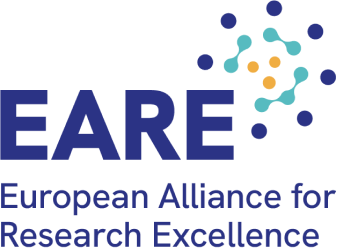EARE contribution to the UK consultation on copyright and AI
As part of the consultation launched by the UK Government on copyright and AI, EARE supports an approach that promotes innovation and research excellence. It is crucial for the UK Government to seize its unique opportunity for global leadership in digital innovation. AI drives this innovation in all sectors of the economy, and intellectual property should foster innovation instead of limiting it. Copyright should not be used to solve issues raised by the development of AI. Drawing on our experience within the EU, we have developed several recommendations for the UK government.
Our vision for the UK’s future: Strengthening AI leadership through open data policies and research excellence
- The UK’s AI Opportunities Action Plan sets out a clear strategy to ensure British leadership in AI development. To achieve this goal, the UK must establish a legal framework which fosters innovation and research excellence. This is the only way to remain competitive with AI leaders such as the US and China. In developing this policy framework, the UK should take inspiration from countries, like Japan and Singapore, which have adopted pro-innovation copyright laws that strongly support machine reading and minimise bias.
- The UK currently invests over £17 billion a year in research and innovation, to turn the latest science into new cancer treatments and reduce energy consumption to tackle climate change. These important societal transformations will only be possible if the UK government implements policies that ensure research excellence and innovation, facilitate access to data, and develop advanced AI systems.
- EARE welcomes clarification of the current UK’s copyright law to provide broad data mining exceptions (Option 2), which would enable fair access to data for all. This option would reduce research bias, drive innovation, and simplify the current complex legal landscape.
- In contrast, Option 3, the Government’s preferred approach, would introduce a relicensing scheme. This would increase the burden on all British businesses, hitting researchers and innovators the hardest. This system would prevent them from using content they already have access to, unless they make a new agreement for AI purposes. It would also require them to renegotiate access to content for AI purposes that they already have access to, reducing the volume of data available for AI models, increasing bias and imposing costs that researchers and innovators in the US and East Asia do not face, making the UK less attractive as a place for research and innovation. It is important to note that countries such as the US, Japan, or South Korea, which follow a more science and innovation-friendly approach to copyright, continue to have a thriving creative industry. Instead of encouraging relicensing through a system that takes inspiration from the EU’s approach, the UK government should encourage flexible exceptions and open data policies to ensure a competitive AIlandscape and prevent further excessive market consolidation. Similarly, technical solutions for implementing the reservation of rights in the EU, which may be used to accommodate option 3, remain complex and, at present, are neither standardised, nor interoperable. The future changes in the legislation should remain technically feasible and economically viable, particularly for start-ups, researchers, and innovators. The modernisation of copyright law in the UK should not be delayed by the development of technical mechanisms for respecting the opt out, which can progress independently. The EU currently enjoys a TDM exception, and the UK cannot afford to be left behind.
- The UK must also recognise the important role of researchers and innovators in the economy and the impact relicensing would have on them. Changes to copyright law would affect all sectors reliant on data for their day-to-day work, including the medical, agricultural, and STEM industries. Any restrictions to data access would have far-reaching economic and scientific consequences. Public fund research will be prevented from being fully leveraged for the public good, and licences will delay the potential impact of research activity, adding significant costs, and lowering the return on investment by the UK government.
- The UK government should also consider the importance of education and the need to develop a highly digitally literate workforce. Training and educational institutions need to be able to develop, build, deploy, and release AI related tools to make it possible.
- To ensure a balanced system that supports both rights holders and the creative industry, the UK Government should consider targeted policy instruments that address the needs of creators without harming research and innovation. Copyright should not be used to solve issues raised by the development of AI. As a comparatively small economy with no first-mover advantage, the only way to make economic and societal progress together is through open, accessible, transparent, reproducible, and cooperative research and innovation.
EARE encourages all its members and organisations representing the innovation and research sector, as well as those using AI, to disseminate these ideas as part of the UK consultation process on AI and copyright and in the coming years.


